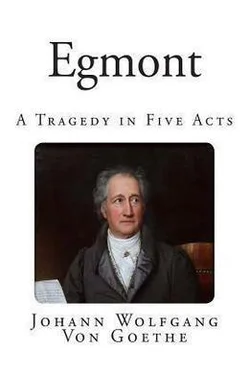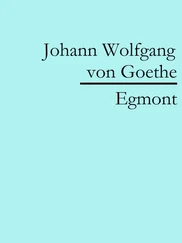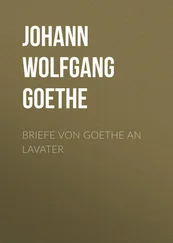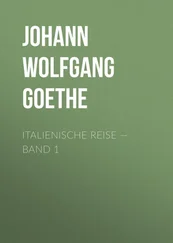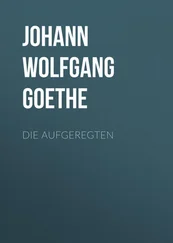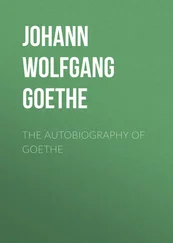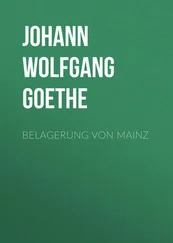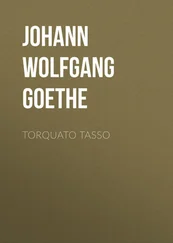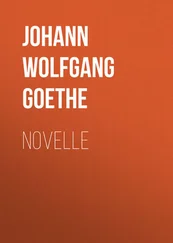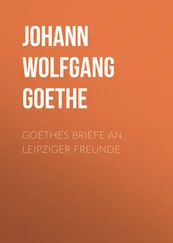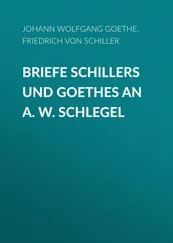Johann von Goethe - Egmont
Здесь есть возможность читать онлайн «Johann von Goethe - Egmont» весь текст электронной книги совершенно бесплатно (целиком полную версию без сокращений). В некоторых случаях можно слушать аудио, скачать через торрент в формате fb2 и присутствует краткое содержание. Год выпуска: 2015, Издательство: epubBooks Classics, Жанр: Драматургия, на английском языке. Описание произведения, (предисловие) а так же отзывы посетителей доступны на портале библиотеки ЛибКат.
- Название:Egmont
- Автор:
- Издательство:epubBooks Classics
- Жанр:
- Год:2015
- ISBN:нет данных
- Рейтинг книги:4 / 5. Голосов: 1
-
Избранное:Добавить в избранное
- Отзывы:
-
Ваша оценка:
- 80
- 1
- 2
- 3
- 4
- 5
Egmont: краткое содержание, описание и аннотация
Предлагаем к чтению аннотацию, описание, краткое содержание или предисловие (зависит от того, что написал сам автор книги «Egmont»). Если вы не нашли необходимую информацию о книге — напишите в комментариях, мы постараемся отыскать её.
Egmont — читать онлайн бесплатно полную книгу (весь текст) целиком
Ниже представлен текст книги, разбитый по страницам. Система сохранения места последней прочитанной страницы, позволяет с удобством читать онлайн бесплатно книгу «Egmont», без необходимости каждый раз заново искать на чём Вы остановились. Поставьте закладку, и сможете в любой момент перейти на страницу, на которой закончили чтение.
Интервал:
Закладка:
Thou art but a shadow, a dream of the happiness I so long possessed; where has treacherous fate conducted thee? Did she deny thee to meet the rapid stroke of never–shunned death, in the open face of day, only to prepare for thee a foretaste of the grave, in the midst of this loathsome corruption? How revolting its rank odour exhales from these damp stones! Life stagnates, and my foot shrinks from the couch as from the grave. Oh care, care! Thou who dost begin prematurely the work of murder,—forbear;—Since when has Egmont been alone, so utterly alone in the world? 'Tis doubt renders thee insensible, not happiness. The justice of the king, in which through life thou hast confided, the friendship of the Regent, which, thou mayst confess it, was akin to love,—have these suddenly vanished, like a meteor of the night, and left thee alone upon thy gloomy path? Will not Orange, at the head of thy friends, contrive some daring scheme? Will not the people assemble, and with gathering might, attempt the rescue of their faithful friend?
Ye walls, which thus gird me round, separate me not from the well–intentioned zeal of so many kindly souls. And may the courage with which my glance was wont to inspire them, now return again from their hearts to mine. Yes! they assemble in thousands! they come! they stand beside me! their pious wish rises urgently to heaven, and implores a miracle; and if no angel stoops for my deliverance, I see them grasp eagerly their lance and sword. The gates are forced, the bolts are riven, the walls fall beneath their conquering hands, and Egmont advances joyously, to hail the freedom of the rising morn. How many well–known faces receive me with loud acclaim! O Clara! wert thou a man, I should see thee here the very first, and thank thee for that which it is galling to owe even to a king—liberty.
Scene III
Clara's House
Clara (enters from her chamber with a lamp and a glass of water; she places the glass upon the table and steps to the window).
Brackenburg, is it you? What noise was that? No one yet? No one! I will set the lamp in the window, that he may see that I am still awake, that I still watch for him. He promised me tidings. Tidings? horrible certainty!—Egmont condemned!—what tribunal has the right to summon him?—And they dare to condemn him!—Does the king condemn him, or the duke? And the Regent withdraws herself! Orange hesitates, and all his friends!—Is this the world, of whose fickleness and treachery I have heard so much, and as yet experienced nothing? Is this the world?—Who could be so base as to hear malice against one so dear? Could villainy itself be audacious enough to overwhelm with sudden destruction the object of a nation's homage? Yet so it is—it is–O Egmont, I held thee safe before God and man, safe as in my arms! What was I to thee. Thou hast called me thine, my whole being was devoted to thee. What am I now? In vain I stretch out my hand to the toils that environ thee. Thou helpless and I free!—Here is the key that unlocks my chamber door. My going out and my coming in, depend upon my own caprice; yet, alas; to aid thee I am powerless!—Oh, bind me that I may not despair; hurl me into the deepest dungeon, that I may dash my head against the damp walls, groan for freedom, and dream how I would rescue him if fetters did not hold me bound.—Now I am free, and in freedom lies the anguish of impotence.—Conscious of my own existence, yet unable to stir a limb in his behalf, alas! even this insignificant portion of thy being, thy Clara, is, like thee, a captive, and, separated from thee, consumes her expiring energies in the agonies of death.—I hear a stealthy step,—a cough—Brackenburg,—'tis he!—Kind, unhappy man, thy destiny remains ever the same; thy love opens to thee the door at night, alas! to what a doleful meeting.
(Enter Brackenburg.) Thou com'st so pale, so terrified! Brackenburg! What is it?
Brackenburg. I have sought thee through perils and circuitous paths. The principal streets are occupied with troops;—through lanes and by–ways have I stolen to thee!
Clara. Tell me, how is it?
Brackenburg (seating himself). O Clara, let me weep. I loved him not. He was the rich man who lured to better a pasture the poor man's solitary lamb. I have never cursed him, God has created me with a true and tender heart. My life was consumed in anguish, and each day I hoped would end my misery.
Clara. Let that be forgotten, Brackenburg! Forget thyself. Speak to me of him! Is it true? Is he condemned?
Brackenburg. He is! I know it.
Clara. And still lives?
Brackenburg. Yes, he still lives.
Clara. How canst thou be sure of that? Tyranny murders the hero in the night! His blood flows concealed from every eye. The people stunned and bewildered, lie buried in sleep, dream of deliverance, dream of the fulfilment of their impotent wishes, while, indignant at our supineness, his spirit abandons the world. He is no more! Deceive me not; deceive not thyself!
Brackenburg. No,—he lives! and the Spaniards, alas, are preparing for the people, on whom they are about to trample, a terrible spectacle, in order to crush for ever, by a violent blow, each heart that yet pants for freedom.
Clara. Proceed! Calmly pronounce my death–warrant also! Near and more near I approach that blessed land, and already from those realms of peace, I feel the breath of consolation say on.
Brackenburg. From casual words, dropped here and there by the guards, I learned that secretly in the market–place they were preparing some terrible spectacle. Through by–ways and familiar lanes I stole to my cousin's house, and from a back window, looked out upon the market–place. Torches waved to and fro, in the hands of a wide circle of Spanish soldiers. I sharpened my unaccustomed sight, and out of the darkness there arose before me a scaffold, black, spacious, and lofty! The sight filled me with horror. Several persons were employed in covering with black cloth such portions of the wood–work as yet remained white and visible. The steps were covered last, also with black;—I saw it all. They seemed preparing for the celebration of some horrible sacrifice. A white crucifix, that shone like silver through the night, was raised on one side. As I gazed the terrible conviction strengthened in my mind. Scattered torches still gleamed here and there; gradually they flickered and went out. Suddenly the hideous birth of night returned into its Mother's womb.
Clara. Hush, Brackenburg! Be still! Let this veil rest upon my soul. The spectres are vanished; and thou, gentle night, lend thy mantle to the inwardly fermenting earth, she will no longer endure the loathsome burden, shuddering, she rends open her yawning chasms, and with a crash swallows the murderous scaffold. And that God, whom in their rage they have insulted, sends down His angel from on high; at the hallowed touch of the messenger bolts and bars fly back; he pours around our friend a mild radiance, and leads him gently through the night to liberty. My path leads also through the darkness to meet him.
Brackenburg (detaining her). My child, whither wouldst thou go? What wouldst thou do?
Clara. Softly, my friend, lest some one should awake! Lest we should awake ourselves! Know'st thou this phial, Brackenburg? I took it from thee once in jest, when thou, as was thy wont, didst threaten, in thy impatience, to end thy days.—And now my friend—
Brackenburg. In the name of all the saints!
Clara. Thou canst not hinder me. Death is my portion! Grudge me not the quiet and easy death which thou hadst prepared for thyself. Give me thine hand!—At the moment when I unclose that dismal portal through which there is no return, I may tell thee, with this pressure of the hand, how sincerely I have loved, how deeply I have pitied thee. My brother died young; I chose thee to fill his place; thy heart rebelled, thou didst torment thyself and me, demanding with ever increasing fervour that which fate had not destined for thee. Forgive me and farewell! Let me call thee brother! 'Tis a name that embraces many names. Receive, with a true heart, the last fair token of the departing spirit—take this kiss. Death unites all, Brackenburg—us too it will unite!
Читать дальшеИнтервал:
Закладка:
Похожие книги на «Egmont»
Представляем Вашему вниманию похожие книги на «Egmont» списком для выбора. Мы отобрали схожую по названию и смыслу литературу в надежде предоставить читателям больше вариантов отыскать новые, интересные, ещё непрочитанные произведения.
Обсуждение, отзывы о книге «Egmont» и просто собственные мнения читателей. Оставьте ваши комментарии, напишите, что Вы думаете о произведении, его смысле или главных героях. Укажите что конкретно понравилось, а что нет, и почему Вы так считаете.
